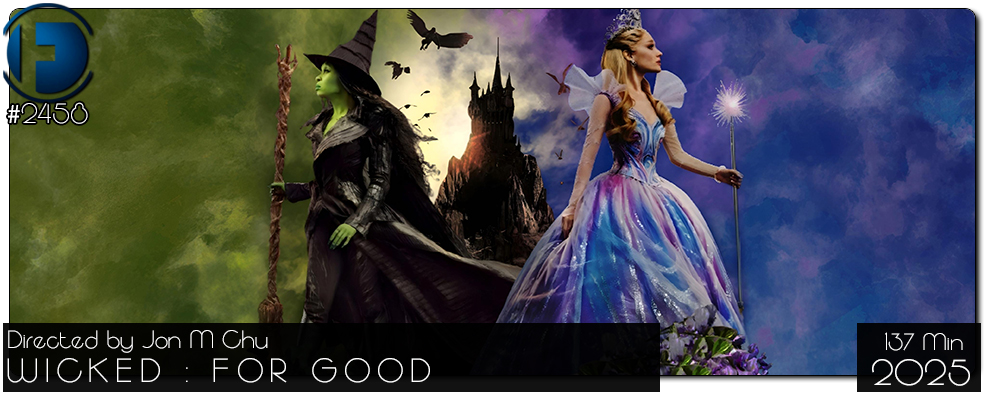Movie Review – Wicked: For Good
Principal Cast : Cynthia Erivo, Ariana Grande, Jonathan Bailey, Michelle Yeoh, Jeff Goldblum, Marissa Bode, Ethan Slater, Bowen Yang, Bronwyn James, Sharon D Clarke, Dee Bradley Baker.
Synopsis: Elphaba, the future Wicked Witch of the West and her relationship with Glinda, the Good Witch of the North. The second of a two-part feature film adaptation of the Broadway musical.
********
As far as sequels go, Wicked: For Good, the second instalment of Jon M Chu’s blockbusting cinematic tentpole based on the now-iconic stage play (and novel) of the same name, is a lot darker in tone, and significantly more problematic adaptive choices that lead it to be, while entertaining, a wholly different wizard spell this time around. Set five years after Elphaba transformed into the Wicked Witch of the West, defying gravity (and Jeff Goldblum’s braggadocios Wizard of Oz), For Good sees the green-hued anti-hero locked in a battle of propaganda and guerrilla warfare against the increasingly embittered ruler of the kingdom of Oz, not to mention the variously denigrated minorities inhabiting the magical land, all of whom are castigated for their differences and, in the case of the once-talking animals, consigned to ignominy, enslavement and incarceration. The eponymous Yellow Brick Road is still being constructed, the Munchkins are restricted from travelling outside of Munchkinland thanks to the morose and jealous Nessarose, whose unrequited beau, the curly haired Boq, still harbours a love for Glinda the Good. Yes, Oz has gone to shit, really.
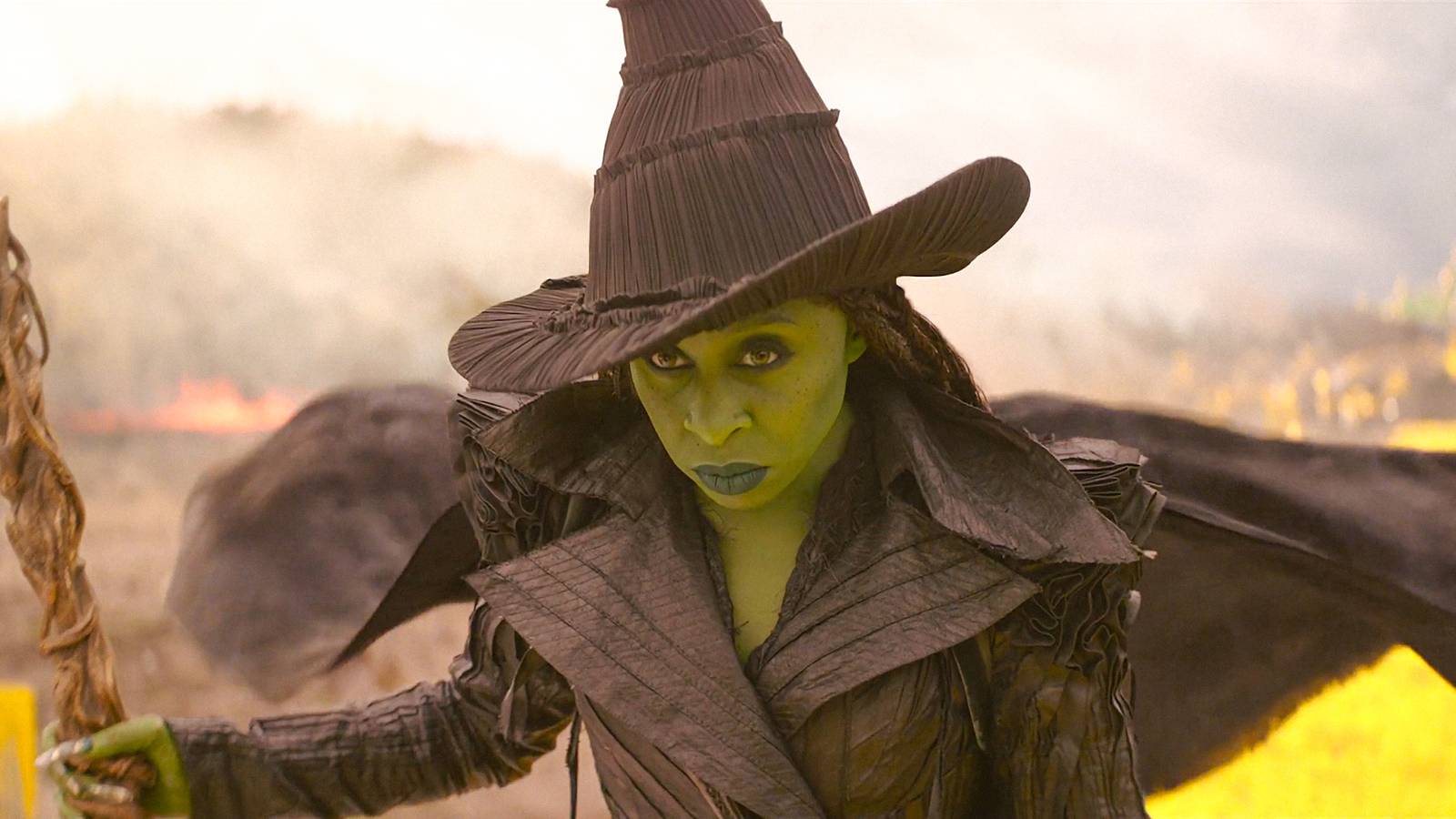
Muddying the waters of the first instalment’s central friendship between Erivo and Grande’s Elphaba and Glinda comes a tortured, brusquely handled series of subplots attempting to expand the thematic dourness of part one’s show-stopping climax – a long held belief that the second act of the stage show is far weaker than the first, with lesser songs and a rushed, almost constricted narrative to complete the story before a tornado drops a house onto a witch and Dorothy arrives with her canine companion. For Good’s attempt to shoehorn in a love triangle between the two leads and poor Jonathan Bailey’s Fiyero, who spends much of the film looking like all he wants to do is escape, is a misstep the film makes, removing the agency of our two heroines in favour of a Bechdel-adjacent conniption – I get why it was done, but it isn’t handled particularly well here. This is a common refrain I found myself repeating after seeing For Good’s delirious sentimentality, that despite all of Chu’s best efforts, the thin plot and uneven character work compared to the first film unravels quite quickly amidst and orgy of musical numbers, action sequences and breathless scampering, as the chess pieces of the first part’s brightly lit, cartoonishly joysome arcs move further into darkness.
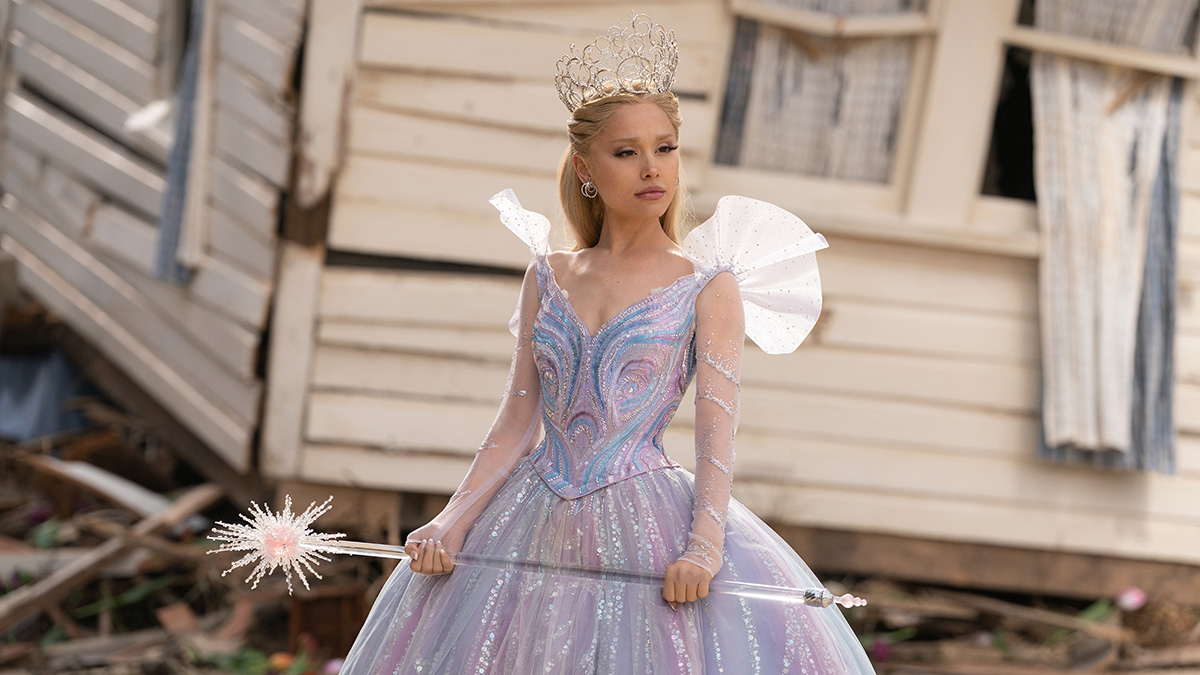
And For Good is visually very dark – the digital grade on this film is absolutely atrocious, burying the cinematography in darkness so thick it makes many sequences almost incomprehensible. The production design, costuming, sets and visual effects work are all supremely good – Academy Awards calling again, I think – but in a visual sense the omnipresent darkness of the themes and tone aren’t enhanced by an overcompensating colour grade sending murkiness and atmosphere into the abyss. Sonically, the film’s thunderous sound design captures the energy and action of Elphaba’s battles with the Wizard and his flying monkeys, the arrival of the tornado that drops a house onto the Wicked Witch of The East, and the cataclysmic finale, with superb alacrity. The songs, as middling as I found them personally, are unquestionably the highlight of the film, with a couple of new Stephen Schwarz ditties lobbed in to pad out the run time and add emotional connective tissue to a problematic second act that Chu and his team try desperately to carve into something compelling. The film is badly missing another song of equal calibre to “Defying Gravity” – fair to say that kneebuckling tune can’t be topped, not even by Erivo and Grande’s exquisite vocals on “For Good”, or even Erivo’s rendition of ” No Good Deed”; honestly, despite the film lurching between Marvel-esque action sequences and quiet, semi-saccharine warbling and showtune-weariness, you can’t deny that Erivo and Grande make the most of their time in song here.
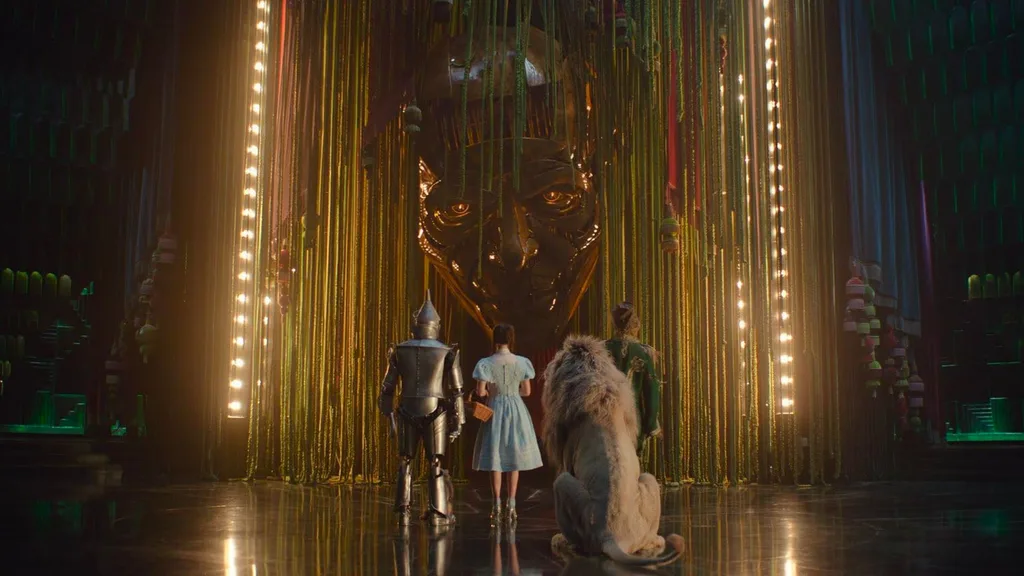
Perhaps more problematically than being unable to see half the film, For Good also has an issue of pacing and length. The film, although shorter than Part One by nearly half an hour, still feels about twenty minutes or so too long, with excruciating edits and protracted sequences dragging when things should be propulsive. The desire to have Ariana and Cynthia on screen as much as possible perhaps removes the editorial decisions to drag out as many of their scenes for as long as possible – gotta get your money’s worth, after all – but the result is a movie that jitters and skitters momentarily, before then trying to wring out pathos from a moment that just doesn’t have any.

The treatment of the film’s various supporting characters is also a key flaw, from the limited screentime afforded Michelle Yeoh and Jeff Goldblum compared to the previous film, or the reduction of Jonathan Bailey’s ability to charm the pants off us all again, even the denizens of Glinda’s court or the various Ozians are given short thrift throughout. The bitter, jealous arc of Nessarose, Elphaba’s disabled sister, obviously needs to happen from an emotional standpoint, but Chu somehow makes it feel tacked on, lacking genuine stature within the framework of the film – the poor actress, Marissa Bode, tries her best, but can’t manage to eke out the required rage to formulate her eventual fate into a cathartic throughline, ending up a tragic afterthought in For Good’s desire to pepper in the many, many nods to 1939’s The Wizard of Oz. The final third of For Good’s plot runs concurrent to the ’39 film’s main plot, with Dorothy arriving in Oz, meeting the Wizard, and then being tasked with killing Elphaba and taking her broomstick as proof; arguably the balance between memberberries and outright IP theft wavers magnificently as Chu and his creative team spring a number of good, bad and significantly resonant callback choices for us – perhaps most horrifying is the arrival of the Tin Man, like something from a horror film – as the ubiquitously effervescent Dorothy Gale (or at least an avatar of her, here) enters the frame.
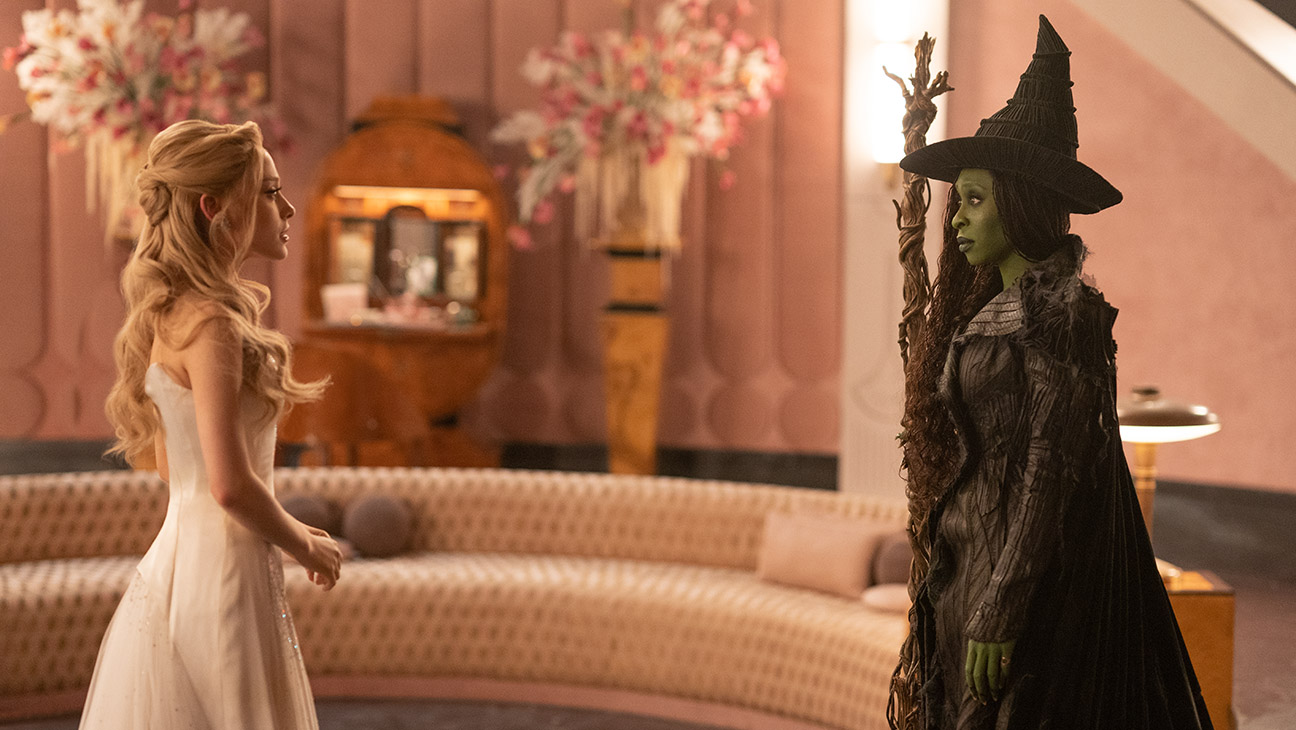
Yet, despite my criticisms about For Good’s clumsy creative choices in story, pacing and style, there’s no denying the sheer star power of both Ariana Grande and Cynthia Erivo in the lead roles, holding everything together with a femininity and sisterhood-strength that’s palpable through the screen. Erivo, who absolutely slays whenever she’s flying around on her broomstick looking like Neo just re-entered The Matrix, is as honest a performer as the day is long, and her Elphaba is arguably the film’s strongest element. Erivo radiates sadness, melancholy, an aching sense of retribution and, in the end, strength to make the hardest of choices, and her on-screen chemistry with Grande’s blonde-and-pink Glinda saves the film entirely. Grande, for her part, has far less of the comedic angles to work with thanks the film’s darker themes and sense of impending change, delivers a remarkably nuanced and tear-jerking turn as Glinda has to reckon with her own participation in Oz’s subjugation and Elphaba’s castigation, all while remaining “good” for all of Oz to believe in when things are darkest. Both actresses show their true range here morseo than the first film, with more complex and compelling emotional journeys within the narrative to undertake – for me, the film’s MVP is Grande, only by a hair. She’s great here.
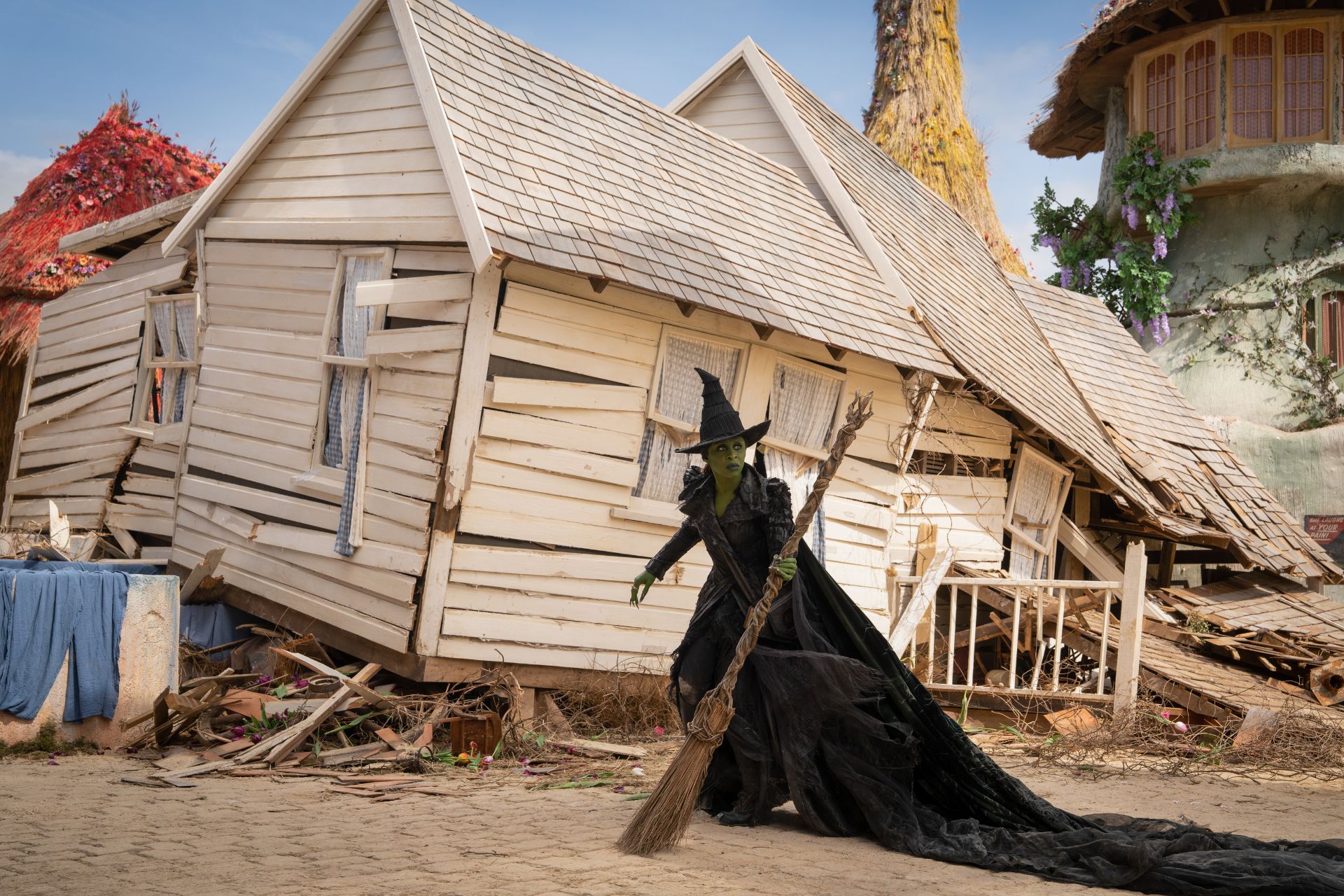
I can definitely understand the criticisms levelled at this film, despite actually having a pretty good time with it. For Good isn’t great, and it’s not as “fun” as Part One by a long shot, but it is still a resounding triumph of music, sound and artistry; I think in time, with the ability for people to watch both this film and Part One consecutively and engage with the various tone shifts, narrative lurches and the story’s inherent second-half weaknesses – and let’s be clear here, at least Chu and his writing team have tried to correct some of the oft-complained about issues with the Broadway show’s post-intermission lag – the complete five-hour Wicked cinematic experience will become a perennial event on the couch.

